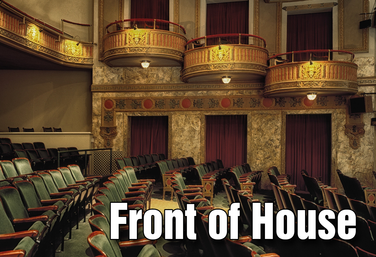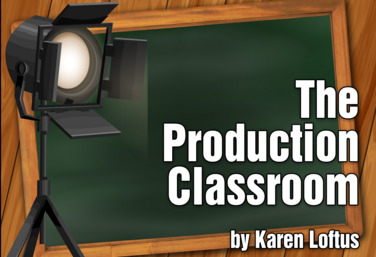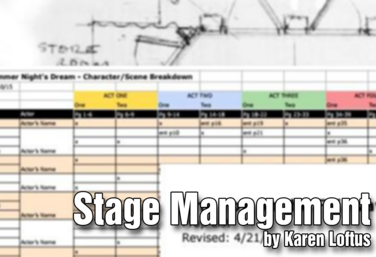Virginia Standards Of Learning (2020)
Technical Theatre
View all Standards for Virginia Standards Of Learning (2020)
TT.23 The student will identify the responsibilities of the stage manager, house manager, and business manager.
Part of the Drama One Curriculum
Front of House
by Karen Loftus
This unit looks at theatre jobs in the business category: front of house, marketing, and box office. The aim of these jobs is to interact with the public. Students are able to identify what “front of house” refers to and understand the various roles of a theatre company’s front of house members.
Students will also explore how a show is marketed and demonstrate their knowledge of marketing by creating a simple marketing campaign for an original show.
Read More...
Read Less...
Part of the Production Classroom Units Curriculum
Part One - Pre-Production
by Karen Loftus
In Part One of The Production Classroom, you’ll take your students through a series of pre-production units designed to help students gain as much comprehension as possible about putting on a successful production.
Read More...
Read Less...
Part of the Stagecraft Without a Theatre Curriculum
Introduction to Theatre Production
by Karen Loftus
Students will explore the question of “what is theatre production?” They’ll be able to identify and describe each of the crafts of technical theatre as well as who does what in theatre production.
Read More...
Read Less...
Part of the Stagecraft Without a Theatre Curriculum
What is a Stage Manager? (Extra Lesson)
by Karen Loftus
We have included a stage management “extra” lesson in this curriculum as an introduction to the stage manager role. Stage management is certainly an important role when it comes to the technical elements of a theatre production.
If you want to include a more realized stage management unit, we have you covered. DTA has an extensive Stage Management Unit in the curriculum section of the DTA website (see link below).
Read More...
Read Less...
Stage Management
by Karen Loftus
A unit on stage management is a great way to link technical theatre, acting, and even directing. We spend so much of our class time on performance-related projects and, when we do address technical theatre, we often do so by talking about design.
Why not introduce your students to a skill set that not only benefits your productions by ensuring a strong backstage crew and smooth production process, but also benefits the students individually? Through exploring stage management, students learn skills such as analytical thinking, organization, teamwork, and problem solving.
Read More...
Read Less...
Part of the Production Classroom Units Curriculum
Part Three - Reflection and Assessment
by Karen Loftus
Part Three provides a Post-Performance Reflection. Unpack the experience with students, reflect back on what went right and what could be changed for next time. A written Reflection is included as well as a Rubric for student production binders.
Read More...
Read Less...
Part of the Production Classroom Units Curriculum
Part Two - Documents
by Karen Loftus
This section provides samples and worksheets for actor forms, costume department, general binder, lighting and sound, marketing samples, scenic and prop samples, and stage management and production manager samples and forms.
Read More...
Read Less...
Part of the Production Classroom Units Curriculum
Part Two - Rehearsal and Performance
by Karen Loftus
Part Two offers articles on each step in the process, samples and forms, a suggested pacing, role definitions and task checklists, an outline for a typical class, as well as performance duties. This section also outlines the assessment piece for The Production Classroom – the production binder.
Read More...
Read Less...
View all Standards for Virginia Standards Of Learning (2020) Standards Master List
© Copyright 2015-2025 Theatrefolk







